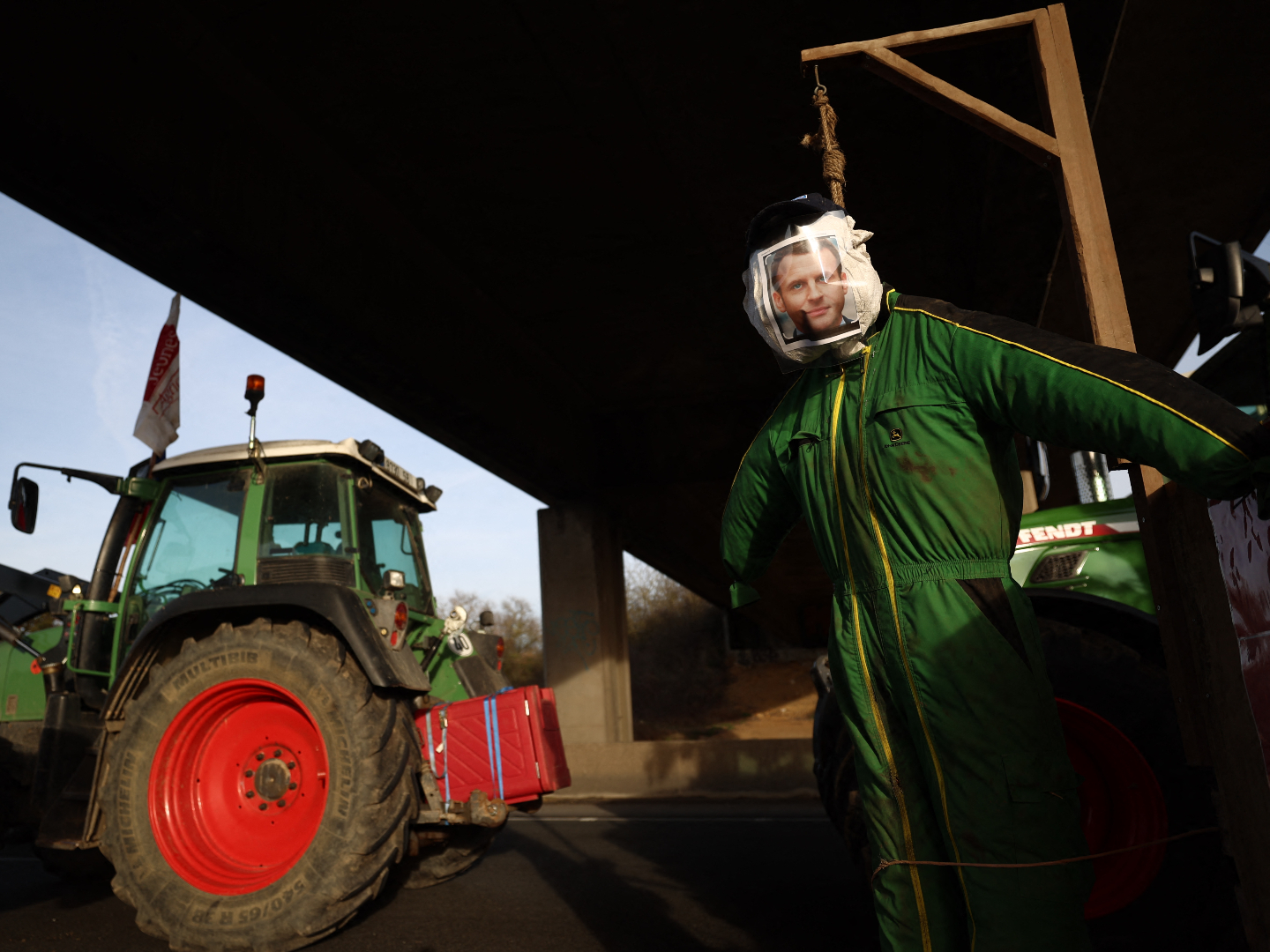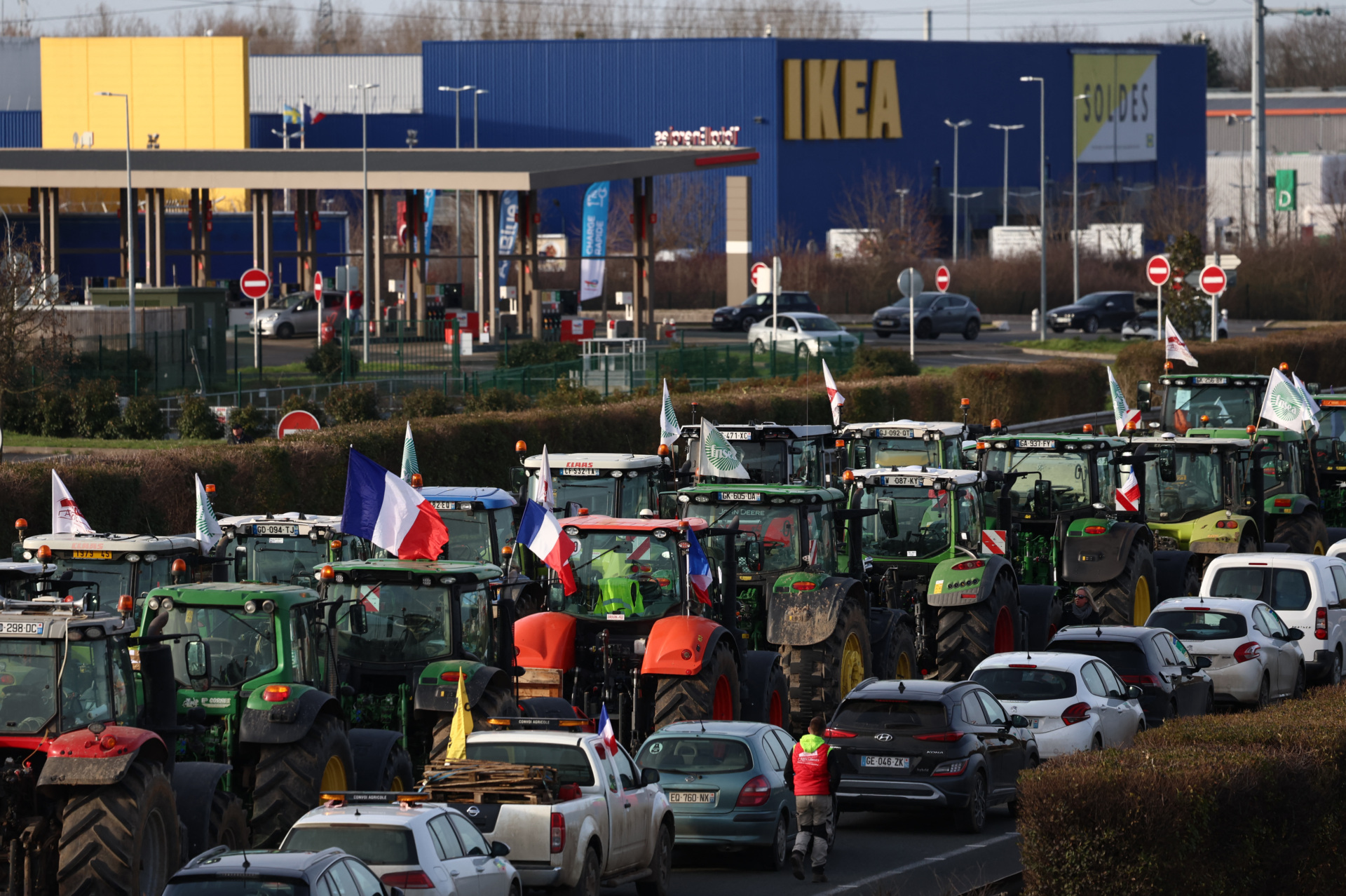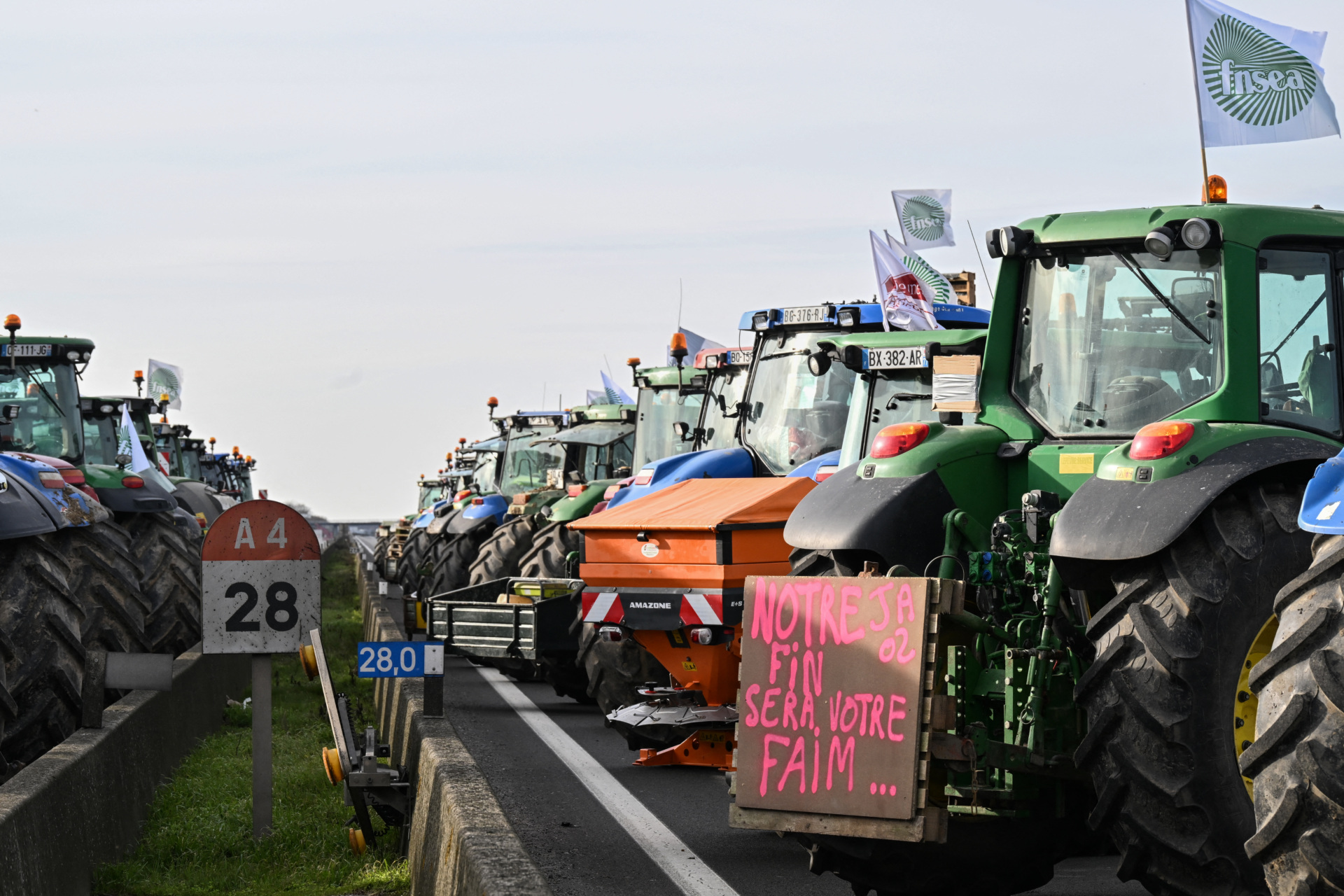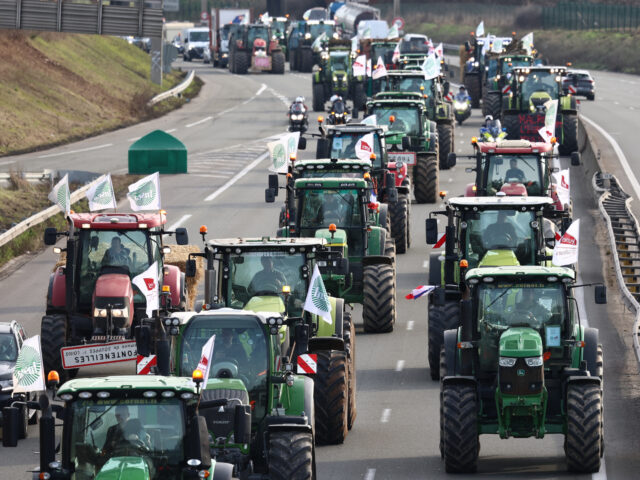Kicking off the “Siege of Paris” on Monday, thousands of farmers took to their tractors in a coordinated attempt to block off entrances to the French capital in protest against globalist green policies they say are destroying their ability to stay in business.
In an escalation of the latest example of popular uprisings that have come to define President Macron’s tenure in office, farmers descended in their tractors to shut down major highways leading into Paris on Monday following a week of similar protests throughout the country.

A mannequin in the effigy of French President Emmanuel Macron hangs next to tractors during a road blockage of the A6 highway near Villabe, south of Paris, on January 29, 2024, amid nationwide protests called by several farmers unions on pay, tax and regulations. (Photo by Emmanuel Dunand / AFP) (Photo by EMMANUEL DUNAND/AFP via Getty Images)
According to the Le Figaro newspaper, farmers successfully enacted blockades on eight major highways, with tractors lined up for tens of kilometres around the ring road surrounding Paris. In total 16 highways and 30 administrative departments around the city were impacted by the demonstrations on Monday, while separate farmer uprisings continued in at least 40 other locations throughout the country.
President Emmanuel Macron will reportedly hold an emergency meeting with his government ministers at the Élysée on Monday to be briefed on the “overview of the agricultural situation”. Meanwhile, Gabriel Attal, who was installed as France’s youngest-ever prime minister earlier this month by Macron, will reportedly hold crunch negotiations with the leader of the FNSEA farmer’s union Arnaud Rousseau and the head of the Young Farmers Arnaud Gaillot on Monday evening.

Farmers driving tractors take part in a road blockage of the A6 highway near Villabe, south of Paris, on January 29, 2024, amid nationwide protests called by several farmers unions on pay, tax and regulations. (Photo by EMMANUEL DUNAND / AFP) (Photo by EMMANUEL DUNAND/AFP via Getty Images)
The “Siege of Paris” was called for over the weekend after Prime Minister Attal’s attempts to quell the anger of the farmers with several “concessions” were rejected for not going far enough.
It is unclear exactly how many of the farmer’s 140 demands the French government can actually meet, given that many of the stifling green agenda regulations were imposed by the EU. However, farmers groups and populist politicians have noted that Macron’s party in Brussels was a principal backer of the climate change cause and, therefore, is still to blame.
Speaking from a blockade outside Paris on Monday, the president of the FDSEA farmer’s union in Yvelines, Luc Janottin said: “We want to tell Mr Attal that he must work for his subjects rather than going for walks on the farms. France could suspend overnight all the environmental standards that complicate our lives and we expect it to do so!”
Janottin said that the purpose of the protests was not to “annoy motorists” and that the farmers would allow people to move through the blockades, saying: “The Paris blockade is just an image. We are not going to completely stop people from moving around. Above all, we want to show our presence, to say that we are tired of doing paperwork rather than our job.”

This photograph taken on January 29, 2024, shows tractors including one with a placard reading “our end will be your hunger” next to a road sign signaling the A4 highway, during a road block protest by French farmers on the A4 highway near Jossigny, east of Paris, amid nationwide protests called by several farmers unions on pay, tax and regulations. (Photo by Bertrand GUAY / AFP) (Photo by BERTRAND GUAY/AFP via Getty Images)
In addition to targeting Paris, at least 80 tractors enacted a blockade of the A7 highway and elsewhere outside Lyon, where local farmers have also spoken of a “siege” of the city.
“A siege normally lasts a long time, we are not specialists in blocking but we will maintain it for as long as it takes,” said the head of the regional branch of the FNSEA union Michel Joux. “There is palpable tension and exceptional motivation.”
Critical roads leading into Marseille, including the A7 and A55 motorways were subject to “snail operations” local officials said, adding that the A50 is “currently at a complete standstill”.
The battle between agriculture and green agenda proponents is set to become a key issue in the upcoming European Union Parliament elections in June, with farmers and rural communities rising up in France, Germany, Poland, Romania and previously in the Netherlands over green regulations, which they claim have become too much to handle on top of the rising cost of fuel and inflation.
The decision by Brussels to allow tariff-free access to agricultural goods from Ukraine has also been a major sticking point. While the move may have lowered the cost of baguettes in Paris, farmers have struggled with the imports undercutting their prices, given the much lower cost of labour in the former Soviet state as well as the lack of EU regulations, further lowering the cost of Ukrainian imports.
While the EU is actively attempting to entirely incorporate Ukraine into the bloc as a member state, there has been little public consideration from Eurocrats about the impact such a move would have on European farmers.
On Monday, FNSEA chief Arnaud Rousseau pointed to the sugar industry as a key example, saying that the sharp increase in imports into Europe following the Russian invasion has made business “untenable” for farmers throughout the continent.

COMMENTS
Please let us know if you're having issues with commenting.